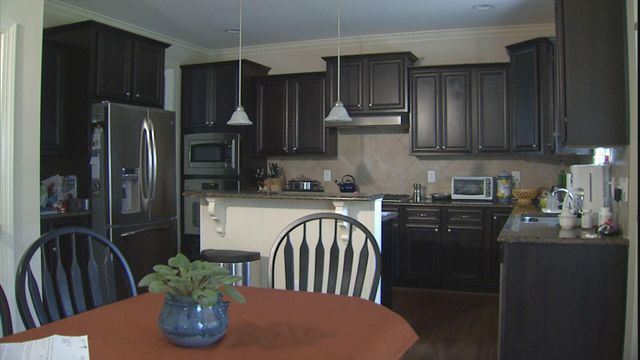Timing of assessment says it all for property taxes
No one wants to pay more than they have to, for anything. Yet, many of us pay property taxes on a much higher value than our homes are really worth. The difference can be tens of thousands of dollars, as an Apex homeowner found out.
Posted — UpdatedThe difference can be tens of thousands of dollars, as an Apex homeowner found out.
"One of the main reasons we moved in the first place was to get into a better school district," said Charles Simmons.
He and his wife bought a newly built, 3,000-square-foot home last fall. Soon after, the tax bill arrived.
"It just kind of surprised me because, at first, I thought, 'Gee, that's nice that my house is worth that much,'" said Simmons. "Then, on second thought, I thought, 'Well, I don't think I could sell it for this, because nothing in the neighborhood is going for anywhere near this.'"
He paid $340,000 for the house. His tax bill value is $405,000 – a $65,000 difference.
The numbers are based on two things: how often the county tax office reassesses properties and market conditions when that assessment happens.
Simmons' assessment is based on numbers from 2008, the last time Wake County did a reassessment. It was years before the home was even built.
Simmons called Wake County's Department of Revenue to appeal and said he didn't get anywhere. WRAL's 5 On Your Side talked with Wake County Revenue Director Marcus Kinrade.
"If they're appealing solely based on the market downturn since the last revaluation, that's not appealable, bottom line," Kinrade said, stressing market conditions have no impact on appeals.
Across North Carolina, assessment timetables vary from every four to eight years. More than half of the counties, including Wake, reassess every eight years. So does Durham County, where the tax administrator says 85 percent of appeals are based on market conditions and are therefore automatically denied.
WRAL's 5 On your Side looked further and found there's no national standard for assessments. Across South Carolina, reassessments happen every five years. It varies in Virginia, but Richmond recalculates every year.
Kinrade cautions that that comes at a very high cost.
"Doing a revaluation is very expensive," he said. "It can cost anywhere from $6 to $8 million."
Kinrade points out that most Wake County homeowners would not benefit from a reassessment done now after four years.
His example: a home with a median tax value of $225,000 in 2008 might be valued at $202,000 today. Because tax rates would be adjusted to make sure the county continues to receive the same amount of revenue, that homeowner would now end up paying about 10 percent more in taxes.
The tax rate would increase to make up for the lower value of the home.
With current market conditions, lower-priced homes typically lose less value than high-end homes. People whose homes are valued at about $600,000 and less would pay more in taxes. Those with homes valued above $800,000 would pay less.
Many tax assessment experts say four-year cycles probably work best for both sides. Any proposal to increase an assessment cycle would likely have an uphill fight because of the additional staffing and money it would require.
Kinrade says, between 2000 and 2008, their appeal rate was quite low "because that was a very good market."
"Our assessments were far below fair market value, and, of course, no one's going to complain about that," he said.
"I have no problem paying my taxes on the house, but I'd like it to be at least reasonable," Simmons said.
For Simmons, reasonable would be to have the tax value on his home more in line with what he paid for it.
Homeowners should make sure their property is valued at a similar range as their neighbors'. Governments ideally distribute the tax base evenly across similar properties.
• Credits
Copyright 2024 by Capitol Broadcasting Company. All rights reserved. This material may not be published, broadcast, rewritten or redistributed.





